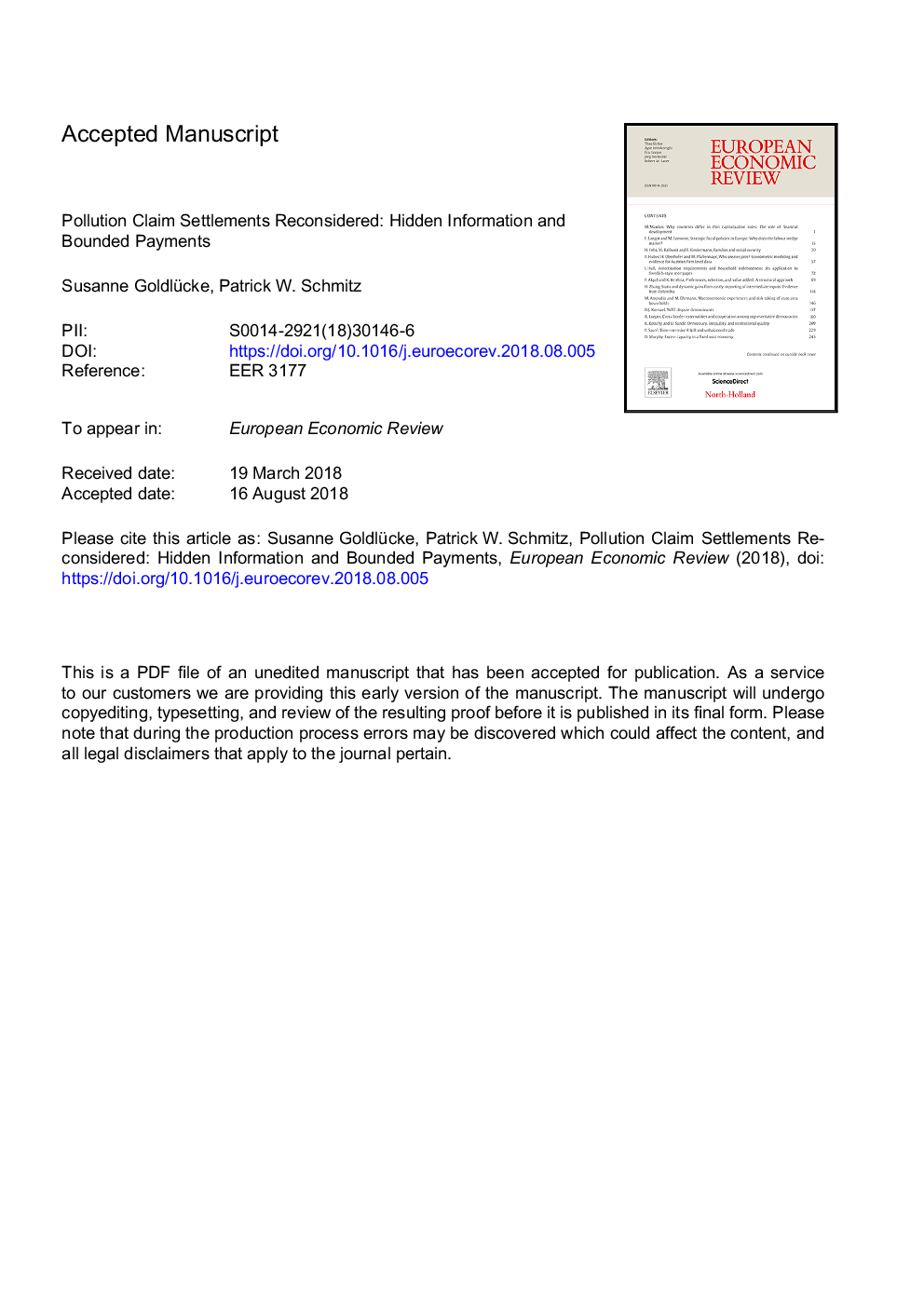| Article ID | Journal | Published Year | Pages | File Type |
|---|---|---|---|---|
| 10140441 | European Economic Review | 2018 | 27 Pages |
Abstract
A principal's production decision imposes a negative externality on an agent. The principal may be a pollution-generating firm, the agent may be a nearby town. The principal offers a contract to the agent, who has the right to be free of pollution. Then the agent privately learns the disutility of pollution. Finally, a production level and a transfer payment are implemented. Suppose there is an upper bound (possibly zero) on payments that the agent can make to the principal. In the second-best solution, there is underproduction for low cost types, while there is overproduction for high cost types. In contrast to standard adverse selection models of pollution claim settlements, there may thus be too much pollution compared to the first-best solution.
Related Topics
Social Sciences and Humanities
Economics, Econometrics and Finance
Economics and Econometrics
Authors
Susanne Goldlücke, Patrick W. Schmitz,
